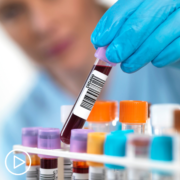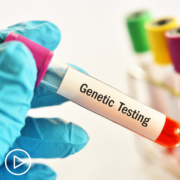What Metastatic Breast Cancer Patients Should Know About Treatment and Research from Patient Empowerment Network on Vimeo.
What do metastatic breast cancer patients need to know about treatment and research? Dr. Jane Lowe Meisel shares updates and recommends resources for staying abreast of research news.
Jane Lowe Meisel, MD is an Associate Professor of Hematology and Medical Oncology at Winship Cancer Institute at Emory University. Learn more about Dr. Meisel here.
See More From INSIST! Metastatic Breast Cancer
Related Resources:
Transcript:
Katherine:
So, let’s start by discussing the latest developments in treatment and research updates. Are there recent developments you feel breast cancer patients should know about?
Dr. Meisel:
Absolutely and I think it’s really been such a remarkable time because even during COVID, a pandemic, where I think a lot of people worried that research efforts would shut down or stall. We’ve still seen the approval of a number of drugs in the past year that’ve really already markedly changed lives. And a lot of important findings that’ve come out of other trials that they have opportunity to do that as well.
I think some of the biggest information that was presented at our most recent large meeting, which was the American Society of Clinical Oncology, or ASCO National Meeting in 2021, were a few things that pertain to the metastatic breast cancer population. One was two studies, the PALOMA-3 Trial and the MONALEESA-3 Trial, which looked at a class of drugs called CDK4-6 inhibitors along with anti-estrogen pills in metastatic estrogen-positive breast cancer.
And really confirm for patients that not only do these drugs improve the amount of time that people can stay on treatment before their cancer progresses, but actually improve how long people live. Even when they’re used very, very early on in treatment, they impact survival down the line for many, many years. So, it really confirms for physicians like me that this class of drugs should be used as the standard of care and first line for patients with estrogen-positive stage IV breast cancer, and I think that’s important for patients to know. Along those lines, there’s a drug called sacituzumab govitecan, or Trodelvy, which is a much easier to say name.
Katherine:
Yes.
Dr. Meisel:
A new antibody drug conjugate in triple-negative metastatic breast cancer. And we’ve also seen, since this drug was approved last year, it has markedly changed the lives of many patients with triple negative disease. And the study called the ascent trial, which is what led to that drug’s approval was studied further and some of these additional results presented at ASCO this year.
And found that this drug not only improves again, how long people get before they have to move on to another treatment, but actually improves how long people live as well, even when given later on in the course of therapy. So again, really encouraging use especially in triple-negative metastatic disease, which is hard to treat. And I think another study that’s really worth patients and doctors taking a hard look at, was actually a study that looked at patient outcomes and patient experience. This is a study that actually talked with metastatic patients and gathered their views on treatment related adverse effects.
Talked to patients about what adverse effects they were experiencing from drugs. How they managed those adverse effects. And found that most patients, over 90 percent, will be willing to talk about reducing the dose of drugs or changing dosing schedules, in order to improve quality of life. And I think that’s really important because a lot of times, the doses of drugs that get approved are the doses that are the highest doses that don’t cause extreme toxicity. But sometimes people can have effective, really good outcomes on lower doses and have much better quality of life.
And in metastatic breast cancer where really the goal often times is to help people live as long as they can, but also as importantly, as well as they can, be able to have those open-ended conversations between patients and doctors about what’s really impacting your quality of life now and how can we make that better is important. And this study I think really highlighted that both for patients and physicians, how important that back and forth is to having a successful outcome. Both in terms of how life is lived, but in terms of quality of that life.
Katherine:
Right. Right. How can patients stay up to date on developing research?
Dr. Meisel:
It’s so interesting because there is so much coming out and I think it can be hard to figure out what Phase I study that looks exciting is really going to become something, versus what really could be important in my treatment today. And what I always tell people is actually, the NCI website. So, the national cancer institute, has a phenomenal page looking at advances in breast cancer research. So, if you Google NCI advances in breast cancer research, there’s a great page that comes up. And it’s impressively up to date and I think very patient friendly.
Breaks things down into early stage and metastatic and then in the metastatic section, talks about estrogen-positive, HER2-positive, triple-negative, which we can talk about more today but are the three big subtype of metastatic disease that dictate how we treat them. And then have links to all the different research updates and talk about what these drugs are, what the classes are and what the settings are in which they’re studies.
And so, I think that’s a really great first stop and then the links can take you to all different stuff that’s on the page that you might want to look into more in depth. And then also, the Breast Cancer Research Foundation, which is a phenomenal organization. They have a great website, too and if you click around on the website, you can see not only who they’ve donated money to that’s doing promising research, they also have podcasts, they have a blog with science and research news. I think that’s a really great site for patients to use to stay updated.


















